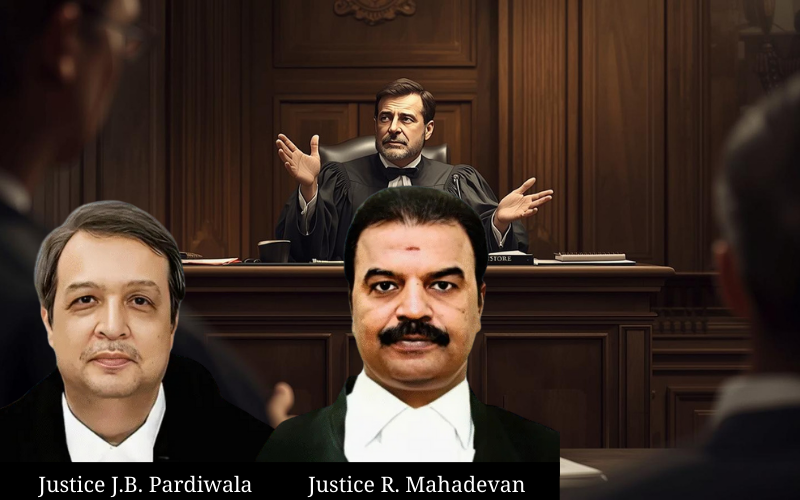Despite interim protection granted by the High Court, the anticipatory bail applications were ultimately rejected
New Delhi, September 12, 2025 – The Supreme Court of India in the case of Anna Waman Bhalerao v. State of Maharashtra, the court emphasized the need for expeditious disposal of anticipatory bail applications to uphold personal liberty and prevent unnecessary delays. The judgment, rendered by Justices J.B. Pardiwala and R. Mahadevan, underscores the constitutional ethos of justice and liberty, aiming to ensure that applications affecting personal liberty are not kept pending indefinitely.
The case involved Anna Waman Bhalerao, who sought anticipatory bail after being accused of certifying fraudulent mutation entries based on forged documents during his tenure as a Circle Officer in the Revenue Department of Maharashtra. The allegations stemmed from a transaction dating back to 1996, with the FIR lodged only in 2019, over two decades later. Despite interim protection granted by the High Court, the anticipatory bail applications were ultimately rejected.
The Supreme Court, while affirming the High Court's decision to deny anticipatory bail, highlighted the prolonged delay in the disposal of such applications. It issued directions to High Courts and subordinate courts to prioritize bail and anticipatory bail applications, ensuring their expeditious disposal preferably within two months from the date of filing, except in cases where the delay is attributable to the parties involved.
Key observations from the judgment include the emphasis on balancing individual liberty with investigative needs, especially in cases involving documentary evidence. The court noted that custodial interrogation might be warranted to prevent tampering and ensure effective investigation, even when the allegations pertain to procedural lapses in official duties.
The judgment also addressed the broader issue of judicial delays, with references to historical precedents and decisions underscoring the importance of timely adjudication in matters of personal liberty. The court cited previous rulings, including those from Nikesh Tarachand Shah v. Union of India and Siddharam Satlingappa Mhetre v. State of Maharashtra, to reiterate the significance of safeguarding personal freedom and preventing undue incarceration.
In conclusion, the Supreme Court's judgment serves as a clarion call for the judiciary to uphold constitutional guarantees and expedite the disposal of cases impacting personal liberty. It directs High Courts to implement administrative measures to prevent indefinite adjournments and ensure prompt decision-making in bail matters.
The decision reaffirms the fundamental principle that justice delayed is justice denied, and stresses the need for judicial sensitivity in cases involving personal liberty. The Supreme Court's directive is expected to have far-reaching implications in streamlining judicial processes and reinforcing public confidence in the legal system.
For more details, please refer to the full judgment issued on September 12, 2025.
Anna Waman Bhalerao v. State of Maharashtra, (SC) : Law Finder Doc id # 2777748




